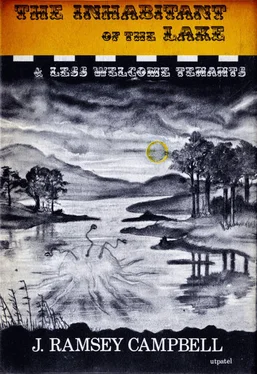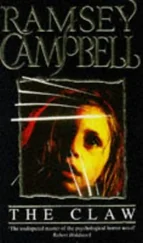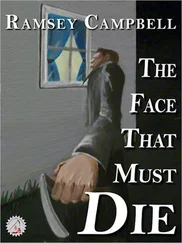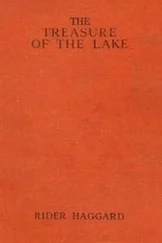This ended the references to the legendary haunter of the woods, but to me it did not seem likely that this was the only probable legend concerning it. The mention at the last of the attempts of some 18th-century warlock to subdue the being sounded like an indication of some tale of the actual outcome of Morley's experiments, and I could easily spare an hour to search for references for the further myth. Not, of course, that my reading of the Necronomicon had made me credulous about fictitious monsters; but it would be a topic of conversation for when I visited my Camside friend, and perhaps I could even visit the home of Sir Gilbert Morley, if anything remained of the building — and if, indeed, such a person had ever existed.
Determined to make a search for the legend which, I felt sure, would be recounted somewhere, I had the librarian select aU the volumes which might be of interest to me in my quest. The final selection included Wilshire's The Vale Of Berkeley, Hill's Legendry and Customs of tke Severn Valley, and Sangster's Notes on Witchcraft in Monmouthshire, Gloucestershire and the Berkeley Region. My original research forgotten, I began to peruse the books, not without a shudder at certain passages and illustrations.
The Wilshire volume I soon dispensed with. Apart from the usual stories about female apparitions and earthbound monks, the only legends which touched on the supernatural were those of the Witch of Berkeley and the Berkeley Toad. This last, though a hideous one dealing with an inhuman monstrosity which was kept in a dungeon and which fed on human corpses, did not appear to help me in my search. The Hill and Sangster volumes were more productive, however. Various passages, some occupying over one complete page, told of strange things glimpsed by unwary travellers in the Severn region. Still, I could not think that everything reputed to exist in the surrounding countryside could bear on my present quest. Then I chanced upon a passage in Sangster's work which could be nothing but a reference to the case with which I was concerned. It began by describing almost exactly the occurrences of which I had already read, and continued in the following manner:
'What this being actually was, whence it originally came, and why no legends concerning it are heard before this point, are questions which the reader will ask. There are vague answers for all. The being was supposedly Byatis, a pre-human being which was worshipped as a deity. It was released, according to the legend, by Roman soldiers, from behind a stone door in a camp of indeterminate origin, built long before the advent of the Romans in Britain. As to why there are no legends antedating that of Farmer Cooper's discovery — it is said that there were indeed legends, but in a form so unrecognizable that they were not connected with the later tales. Apparently the terrifying Berkeley Toad was the same being as the deity Byatis; indeed, though the being has only one eye, it does, when its proboscis is retracted occasionally, resemble the general shape of the toad. How it was imprisoned in the Berkeley dungeon, and how it eventually escaped, is not told in the legend. It had some hypnotic power, so that it may have hypnotised someone to open the cell door, though it is likely that this power was used only to render its victims helpless.
'After its encounter with the farmer, it had finally been called from its place in the woods by one Sir Gilbert Morley, who owned a Norman castle, long uninhabited, outside Severnford. The said Morley had been shunned for quite a time by all those living nearby. There was no specific reason why; but he was reputed to have made a pact with Satan, and people did not like the way bats seemed to cluster at the window of one particular tower room, nor the strange shapes which formed in the mist which often settled into the valley.
'At any rate, Morley had stirred the horror in the woods out of its festering sleep, and imprisoned it in a cellar room in his great mansion off the Berkeley Road, no trace of which remains nowadays. As long as it was under his power, he could tap its inherent cosmic vitality and communicate with the sendings of Cthulhu, Glaaki, Daoloth and Shub-Niggurath.
'He was supposed to lure travellers to his homestead, where he would manage to bring them near the cellar and lock them inside; when no victims were forthcoming he would send the thing out to feed. Once or twice late homecomers would be struck speechless with terror by the spectacle of Morley in flight, with a frightful winged thing flying ahead of him. Before long he was forced to remove it and imprison it in a hidden underground room at the castle; forced to do this because, according to the legend, it had grown too vast for the cellar room, growing out of all proportion to the food it ate. Here it remained in the daytime, while after dark he would open the secret door and let it free to feast. It returned before dawn, and he would also return and re-imprison it. If the door were closed, the creature would not be free to roam, by virtue of some seal on the door. One day, after Morley had closed the door on the horror inside (his closing the door was apparent, since searchers found no trace of an open door) he disappeared and did not return. The castle, now unattended, is slowly decaying, but the secret portal has apparently remained intact. According to the legend, Byatis yet lurks in the hidden room, ready to wake and be released if someone should open the hidden lock.'
This I read in the Sangster volume. Before proceeding any further, I had the librarian search for data on the being Byatis in the various books in the locked bookcase. Finally he brought forth the following, which he discovered in Prinn's De Vermis Mysteriis:
'Byatis, the serpent-bearded, the god of forgetfulness, came with the Great Old Ones from the stars, called by obeisances made to his image, which was brought by the Deep Ones to Earth. He may be called by the touching of his image by a living being. His gaze brings darkness on the mind; and it is told that those who look upon his eye will be forced to walk to his clutches. He feasts upon those who stray to him, and from those upon whom he feasts he draws a part of their vitality, and so grows vaster.'
So I read in Ludvig Prinn's volume of horrifying blasphemies, and I was not slow in shutting it and returning it to the librarian when I was sure that nothing more on Byatis could be found in the book. This was also the last reference to this terrifying enigma that I could discover in any volume I had selected, and I handed them back to the custodian. I happened to look at the clock at that moment, and saw that I had spent far more time in my researches than intended. Returning to the original volume by the Berkeley clergyman, I quickly noted down the points named by my friend which I had not already copied, and then left the Museum.
It was about noon, and I intended to drive from the Museum straight to Camside, covering as much distance as possible during daylight. Dropping my notebook in the dashboard pocket, I started the engine and moved out into the traffic. Less vehicles were driving in the direction I took than in the opposite direction, but some time passed before I found myself on the outskirts of London. After that, I drove without giving much thought to the landscape flashing past the windscreen, nor did I particularly notice the approach of darkness, until I realised, upon leaving a roadside cafe where I had drawn up for a meal, that night had fallen. The landscape following my stop at the cafe became merely a view of two discs of yellow hurrying along the road ahead or sliding across the hedge at each bend. But as I neared Berkeley I began to be haunted by thoughts of the unholy practices which had been carried out in this region in olden times. As I passed through Berkeley, I remembered the horrible stories which were told about the town — about the leprous, bloated toad-monster which had been kept in a dungeon, and about the Witch of Berkeley, off whose coffin the chains had inexplicably fallen before the corpse stepped forth. Of course, they were merely superstitious fancies, and I was not really troubled by them, even though the books I had read that afternoon had mentioned them with such credulity; but the glimpses which the headlights now gave of the surroundings, of unlit black houses and moistly peeling walls, were not reassuring.
Читать дальше












